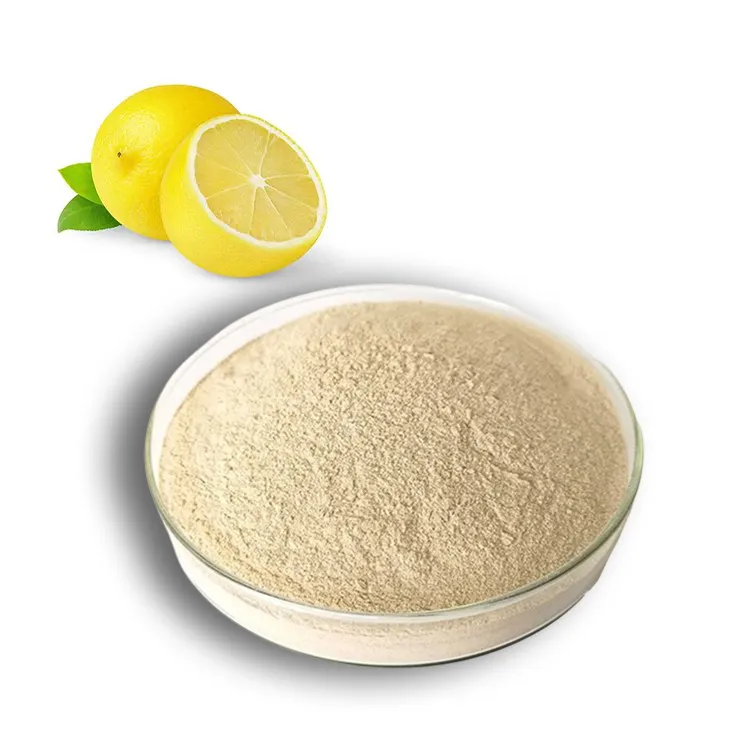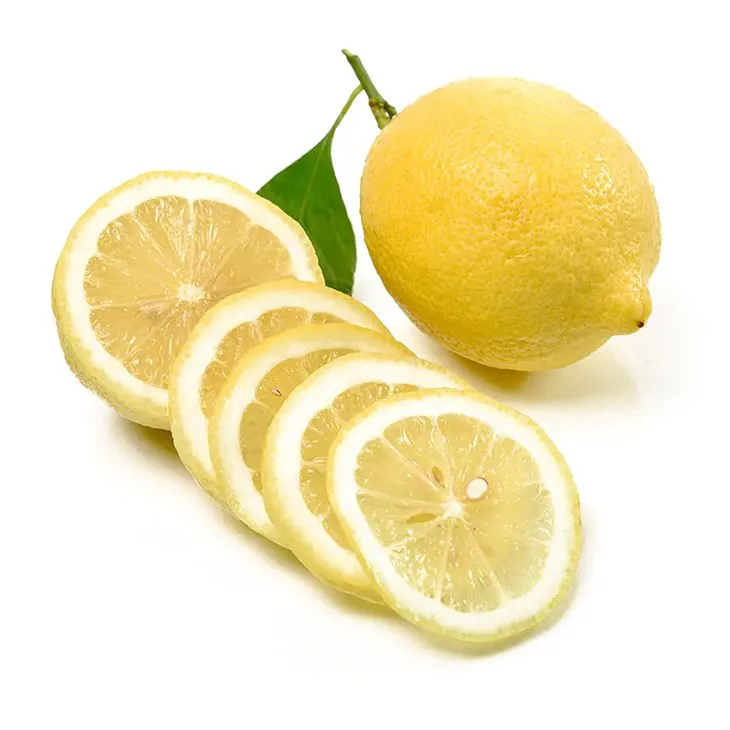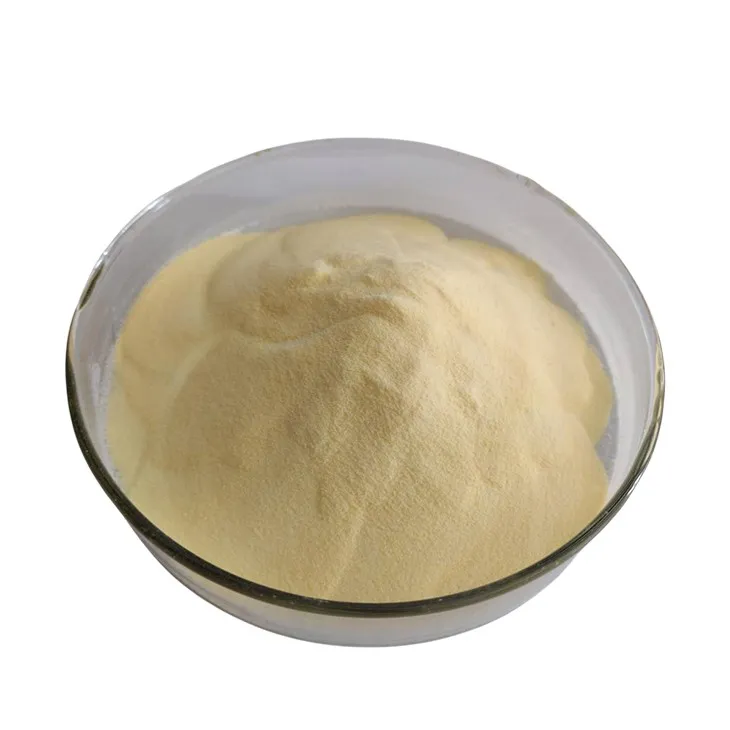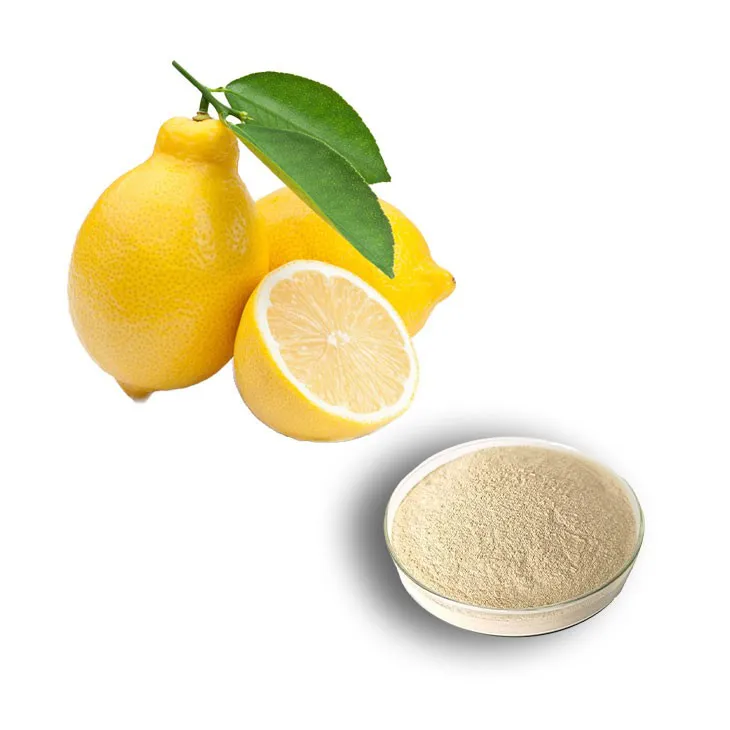- 0086-571-85302990
- sales@greenskybio.com
The Best Lemon Extract in 2024.
2024-11-27

Introduction
Lemon Extract has long been a popular ingredient in various industries, and as we look ahead to 2024, the market for Lemon Extracts is set to become even more diverse and exciting. In this article, we will explore what makes a Lemon Extract the best in 2024, considering aspects such as its terpene profile, grades, and applications in different industries.

The Terpene Profile: A Key Factor
The terpene profile of lemon extract is crucial as it significantly influences both the aroma and flavor. Terpenes are organic compounds that are responsible for the characteristic scents and tastes of plants.
Limonene
One of the most abundant terpenes in lemon extract is limonene. It gives lemon extract its distinctively citrusy smell. Limonene also has potential health benefits, such as antioxidant and anti - inflammatory properties. In the food industry, it enhances the fresh lemon flavor in products like lemon - flavored candies, beverages, and baked goods. In aromatherapy, the citrusy aroma of limonene - rich lemon extract can have a mood - enhancing effect, promoting feelings of relaxation and well - being.
β - Pinene
Another important terpene found in lemon extract is β - pinene. It contributes to the overall complexity of the lemon's aroma. In the cosmetics industry, β - pinene can add a natural, fresh note to products such as perfumes, lotions, and body sprays. It also has antibacterial properties, which can be beneficial in products that are applied to the skin.
γ - Terpinene
γ - Terpinene is present in lemon extract in smaller amounts but still plays an important role. It has a spicy - herbal note that complements the citrusy scents of limonene and β - pinene. In the food industry, it can add depth to the flavor profile of lemon - flavored products. In aromatherapy, it can be used in blends to create a more balanced and harmonious scent.

Grades of Lemon Extract
Lemon extracts come in different grades, each with its own characteristics and uses.
Food - Grade Lemon Extract
Food - grade lemon extract is highly purified and is specifically formulated for use in the food industry. It must meet strict safety and quality standards. This grade of lemon extract is often used in baking, where it can add a concentrated lemon flavor to cakes, cookies, and muffins. It is also used in the production of lemon - flavored drinks, such as lemonades and iced teas. Food - grade lemon extract is typically made from high - quality lemons, and the extraction process is carefully controlled to ensure a consistent flavor.
Cosmetic - Grade Lemon Extract
Cosmetic - grade lemon extract is designed for use in cosmetics and personal care products. It is often processed to preserve its beneficial properties for the skin. In addition to providing a pleasant lemon scent, it can have skin - brightening and astringent properties. It is used in products such as facial toners, exfoliating scrubs, and moisturizers. Cosmetic - grade lemon extract may be further refined to remove any impurities that could potentially irritate the skin.
Aromatherapy - Grade Lemon Extract
Aromatherapy - grade lemon extract is of the highest quality in terms of its aroma. It is used in aromatherapy diffusers, massage oils, and bath products. The extraction process for this grade focuses on preserving the natural terpene profile to ensure a pure and effective aroma. Aromatherapy - grade lemon extract can be used to relieve stress, improve mood, and enhance mental clarity.

Applications in Different Industries
Food Industry
The food industry is one of the largest consumers of lemon extract. As mentioned earlier, it is used in a wide range of products.
- In baking, lemon extract can be added to the batter of cakes, pies, and pastries to give them a delicious lemon flavor. It can also be used in frosting and glazes to add an extra burst of citrusy goodness.
- In the production of confectionery, such as candies and gummies, lemon extract provides a natural and intense lemon taste. It can be combined with other flavors to create unique and appealing combinations.
- For beverages, lemon extract is a popular choice for making lemon - flavored drinks. It can be used in both hot and cold drinks, such as lemon teas, lemonades, and cocktails. The addition of lemon extract can enhance the overall flavor profile and give the drink a refreshing zing.
Cosmetics Industry
The cosmetics industry also makes extensive use of lemon extract.
- In facial care products, lemon extract can help to exfoliate the skin, remove dead skin cells, and brighten the complexion. It is often included in facial scrubs and masks.
- In body care products, such as lotions and body washes, lemon extract can provide a refreshing scent and have antibacterial properties. It can also help to tone the skin and reduce the appearance of pores.
- In hair care products, lemon extract can be used to add shine to the hair and control dandruff. It can be found in shampoos and conditioners.
Aromatherapy Industry
The aromatherapy industry relies on the pure and natural aroma of lemon extract.
- In aromatherapy diffusers, lemon extract can be used to fill a room with a fresh, citrusy scent. This can help to improve the mood, reduce stress, and increase mental focus.
- In massage oils, lemon extract can be combined with other essential oils to create a relaxing and invigorating massage experience. The aroma of lemon can also help to relieve muscle tension.
- In bath products, such as bath salts and bath bombs, lemon extract can add a luxurious and refreshing touch. The aroma can help to soothe the mind and body.

Conclusion
In conclusion, the best lemon extracts in 2024 will be those that have a well - balanced terpene profile, are available in different grades for various industries, and offer a wide range of applications. Whether it is for adding flavor to food, enhancing the properties of cosmetics, or providing a relaxing aroma in aromatherapy, lemon extract continues to be a versatile and valuable ingredient. As consumer demands for high - quality, natural products increase, we can expect to see even more innovation in the production and use of lemon extracts in the coming year.
FAQ:
What factors contribute to a lemon extract being considered the best in 2024?
Several factors contribute to a lemon extract being considered the best in 2024. The terpene profile is crucial as it greatly influences the aroma and flavor. Additionally, factors like purity, extraction method, and the absence of contaminants play a role. The ability to meet the specific requirements of different industries such as food, cosmetics, and aromatherapy also determines its quality.
How does the terpene profile of lemon extracts affect their use in different industries?
In the food industry, the terpene profile of lemon extracts can enhance the flavor of products. For example, it can add a fresh and zesty taste to baked goods, beverages, and confectionery. In cosmetics, it can contribute to the pleasant smell of products like lotions and perfumes. In aromatherapy, specific terpenes in the lemon extract may have relaxing or invigorating effects on the mind and body.
What are the different grades of lemon extracts and how are they distinguished?
There are generally different grades of lemon extracts. High - grade lemon extracts are often pure and have a more complex terpene profile. They are typically made using more refined extraction methods. Lower - grade extracts may have a lower concentration of active compounds or may contain more impurities. Distinction can be made based on factors such as the source of the lemons (organic vs. non - organic), the extraction process (cold - pressed vs. solvent - extracted), and the resulting chemical composition.
Can lemon extracts be used in both natural and synthetic products?
Yes, lemon extracts can be used in both natural and synthetic products. In natural products, they are used to provide a natural source of lemon flavor and aroma, such as in natural skincare products or organic food. In synthetic products, they can be used to mimic the properties of natural lemon extracts. However, in synthetic products, there may be additional chemical modifications or the use of artificial ingredients in combination with the lemon extract.
How are lemon extracts regulated in the food and cosmetics industries?
In the food industry, lemon extracts are regulated to ensure they are safe for consumption. Regulatory bodies set limits on contaminants, ensure proper labeling of ingredients, and may have specific requirements for the extraction process. In the cosmetics industry, there are regulations regarding the safety of ingredients used, including lemon extracts. Cosmetic products must be properly labeled, and the use of lemon extracts must comply with safety standards to prevent skin irritation or other adverse effects.
Related literature
- The Science of Lemon Extracts in Flavor Chemistry"
- "Lemon Extracts: Quality Assessment in the Cosmetics Industry"
- "Terpene Profiles of Lemon Extracts and Their Aromatherapy Applications"
- ▶ Hesperidin
- ▶ citrus bioflavonoids
- ▶ plant extract
- ▶ lycopene
- ▶ Diosmin
- ▶ Grape seed extract
- ▶ Sea buckthorn Juice Powder
- ▶ Beetroot powder
- ▶ Hops Extract
- ▶ Artichoke Extract
- ▶ Reishi mushroom extract
- ▶ Astaxanthin
- ▶ Green Tea Extract
- ▶ Curcumin Extract
- ▶ Horse Chestnut Extract
- ▶ Other Problems
- ▶ Boswellia Serrata Extract
- ▶ Resveratrol Extract
- ▶ Marigold Extract
- ▶ Grape Leaf Extract
- ▶ blog3
- ▶ blog4
-
维生素 B9 制造商
2024-11-27
-
100% Pure Natural Hops Extract.
2024-11-27
-
100% Pure Organic Lavender Extract.
2024-11-27
-
Curcuma Longa Extract/Turmeric extract
2024-11-27
-
Senna Leaf Extract
2024-11-27
-
Medicinal Marshmallow Extract
2024-11-27
-
Black Garlic Extract
2024-11-27
-
Gynostemma pentaphyllum extract
2024-11-27
-
Black Rice Extract
2024-11-27
-
Red Wine Extract
2024-11-27
-
Camu Camu Extract
2024-11-27
-
Curcumin
2024-11-27
-
Licorice Root Extract Powder
2024-11-27





















